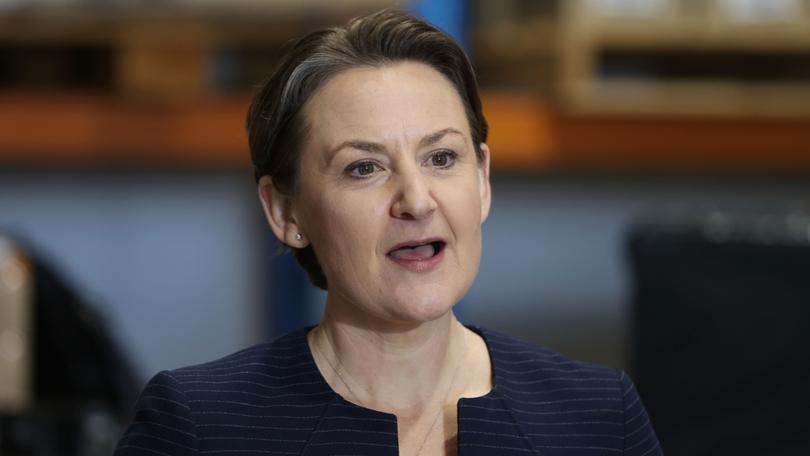Infection
Women will no longer need to see a GP for this painful woe
Women in WA suffering urinary tract infections will no longer have to book a GP for relief from the painful symptoms, with pharmacists stepping up to provide diagnosis and treatment — a move angering doctors.
The news comes as Health Minister Amber-Jade Sanderson also revealed the Government was considering allowing pharmacists to provide the contraceptive pill to women whose prescriptions had expired.
Ms Sanderson said the permanent program for UTI treatment at participating pharmacies was a great step for women’s health care and that a history of UTIs would not be necessary.
“Any woman can present to a trained pharmacist,” the Minister told reporters.
“This is for simple, straightforward episodes of UTI. It’s a very uncomfortable situation to be in and this will provide them with that immediate relief that they require.
“It will be up to that pharmacist to determine whether, if there are repeat episodes of infection, it is probably worth her seeing her general practitioner.
“Those with a more complex history should see their GP.”
Ms Sanderson said every pharmacist she had spoken to had expressed interest in participating.
The move comes amid a widespread shortage of GPs, meaning long waits to get an appointment.
Pharmacy Guild of Australia WA president Andrew Ngeow said the announcement was a practical and sensible direction for primary healthcare.
“Almost three-quarters of a million Western Australian women are able to benefit from increased access to primary health care through community pharmacies,” he said.
“Pharmacist-initiated treatment of urinary tract infection through a community pharmacy will give eligible women across Western Australia access to convenient, safe and timely treatment options.”
But the move has aggravated perennial tensions between doctors and pharmacists, with the Royal Australian College of General Practitioners and Australian Medical Association WA issuing a joint statement saying they could not endorse the move due to potential harms.
They point to overprescribing increasing antibiotic resistance – one of the top 10 public health threats facing humanity – making infections harder to treat and increasing the risk of severe illness and death.
“The best practice for UTI diagnosis involves urine dipstick testing as a minimum,” RACGP WA chair Ramya Raman said.
AMA (WA) president Michael Page said questions still neeeded to be answered including how the program will be evaluated.
“A rigorous evaluation of patient health outcomes is essential to ensure patient safety and the best health outcomes possible, and Western Australians shouldn’t settle for anything else,” Dr Page said.
The groups say they have ongoing concerns about WA’s trial of pharmacy prescribing but are glad to be engaged with the State Government on the issue so they can help make it safer.
Ms Sanderson had earlier been asked how the Cook Government would keep GPs on side.
“I think there’s always anxiety amongst medical practitioners around expanding into their scope of practice,” she replied.
She claimed the AMA and RACGP had “got on board” and offered “really constructive engagement” during consultation.
On oral contraceptives, Ms Sanderson said consideration would be given to allowing pharmacists to continue to provide them to women who had been “on a very stable regime … for a number of a number of years or months”.
“So we are looking at how we can make it easier to access medicines, particularly in women’s health and contraceptive,” she said.
Get the latest news from thewest.com.au in your inbox.
Sign up for our emails

